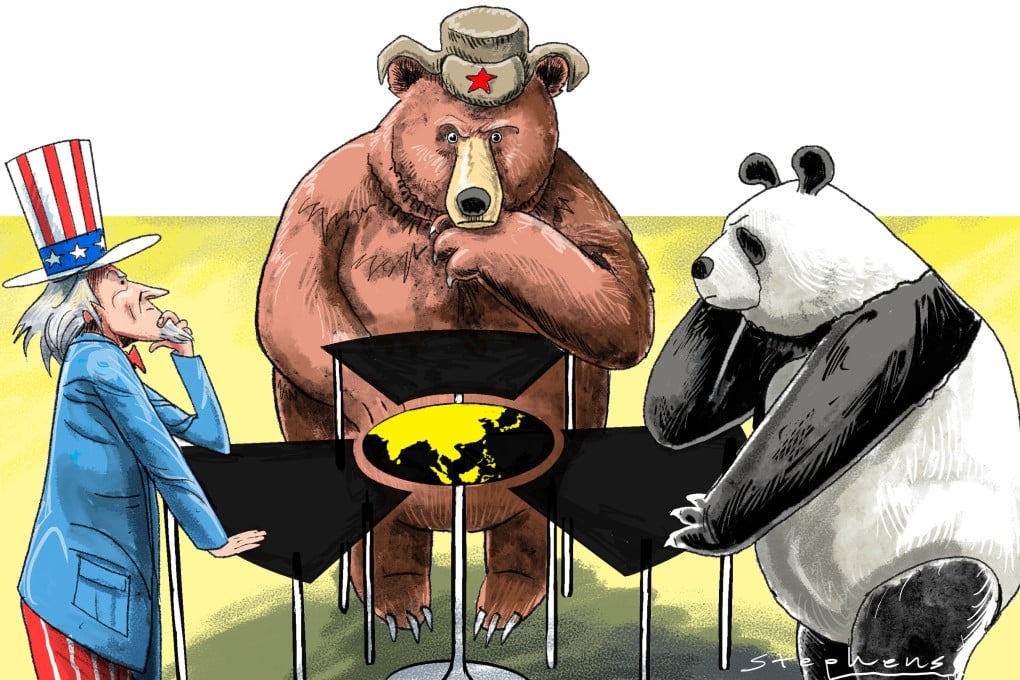Advertisement
Opinion | US-China tensions risk igniting nuclear arms race in East Asia
The US, China and Russia should work together to contain nuclear weapons proliferation and constrain regional deterrence efforts
Reading Time:3 minutes
Why you can trust SCMP
2

North Korea has disclosed its undeclared uranium enrichment sites for the first time since 2010, amid speculation that Pyongyang could have more than 60 nuclear weapons. Meanwhile, reports have emerged that the US and UK are concerned Russia might be sharing secret information and technology with Iran, potentially advancing Tehran’s ability to develop nuclear weapons.
Advertisement
This would align with the nature of cooperation between Iran and North Korea, possibly involving the exchange of strategic technologies. Earlier this year, US President Joe Biden recalibrated America’s nuclear strategy to focus on the supposed threat of China’s expanding nuclear arsenal. In response, China’s defence ministry dismissed the US narrative of a Chinese nuclear threat and called out Washington’s “double standard” on nuclear proliferation.
Amid a deterioration in US-China relations, the risks of a nuclear arms race in East Asia are growing alarmingly. The recent US-China diplomatic battles over nuclear arms control are a continuation of earlier unsuccessful attempts at dialogue.
Both countries have attempted to resume the long-stalled nuclear arms control talks. On November 6, the first official nuclear arms control dialogue since 2018 was convened in the lead-up to Biden’s talks with Chinese President Xi Jinping on November 15, 2023, on the sidelines of the Apec summit.
However, these talks produced no concrete results, and no specific date for follow-up discussions was announced. Semi-official channels were also explored, such as a track two nuclear arms dialogue in March – the first since 2019.
Advertisement
The trajectory of nuclear developments in East Asia, driven by US-China rivalry, threatens to destabilise the region and spark a chain reaction of nuclear deterrence efforts. It is imperative for global security that the US and China resume meaningful arms control dialogue to prevent a cascading series of escalatory measures that could have catastrophic consequences.

Advertisement
.jpg?itok=DJ5XFWbm&v=1725256567)